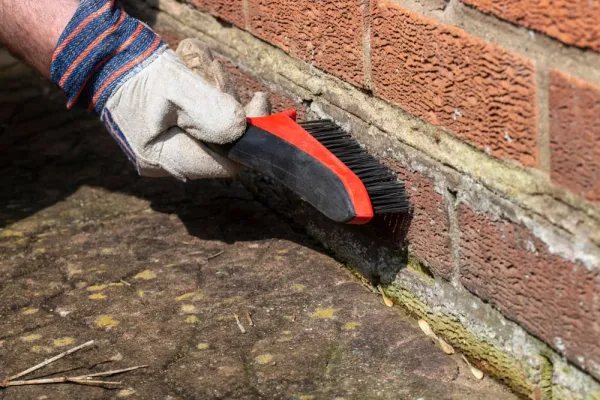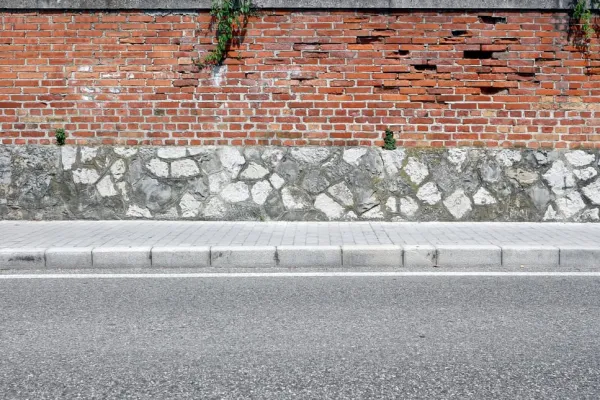You need to know about the condition of a house before you buy it.
This is where a house survey comes in.
You pay for a house survey before you buy a property. But you have different options available.
This blog explains what a house survey is, whether it’s compulsory, and more.
What is a house survey?
A house survey is an in-depth inspection of a property. A qualified surveyor does this.
You’ll get a report summarising everything you need to know by the end.
It looks at structural issues such as:
- Subsidence
- Dampness
- Damaged roofing.
It also explains what repairs are needed.
Extra information that’s useful is given. Examples include the type of glazing and structural makeup.
The home buyer usually arranges and pays for the survey after they’ve had an offer accepted.
Is a mortgage valuation the same as a survey?
No, these are different things.
If you’re a buyer, your mortgage lender will visit your property to determine its worth.
This enables the mortgage lender to decide whether to lend you the money.
A mortgage valuation focuses on property value. It doesn’t give an in-depth report on all the issues with the house.
However, they may use any existing surveys to make their judgement.
Mortgage valuations cost upwards of £350. But some lenders do them for free.
Who carries out property surveys?
A qualified surveyor carries out your property surveyor.
They usually belong to the Royal Institute of Chartered Surveyors (RICS). This expert will have professional indemnity insurance.
Pick someone with knowledge of your local market. If the property is unusual and needs a specialist, get ready to pay a bit more.
Are property surveys compulsory?
No, property surveys are not compulsory. But all experts recommend it.
Some lenders will refuse to give you money without a survey.
This is so they can ensure it’s a safe investment. You can find smaller lenders that won’t ask for this. However, the interest rates may vary.
If you survey reveals problems, you can renegotiate price. Or you could ask the seller to fix them.
Different types of house surveys
Condition report
This is the most affordable survey choice.
It starts around the £300 mark. It offers a basic property overview but doesn’t go into much detail.
HomeBuyers survey
According to the RICS, this is the most popular choice for buyers. You can choose to have this type of survey conducted with or without a valuation.
The survey only option costs upwards of £350. It will report on any obvious issues, such as rot or subsidence.
The surveyor won’t go beyond the basics. So, hidden problems that aren’t obvious won’t be reported (such as hidden wiring or underfloor problems).
The survey plus valuation option costs £450 or more. A detailed survey is done. Plus, a valuation and an insurance reinstatement value.
Home condition survey
Home condition surveys cost between £500 and £750.
The RICS does not offer this type of survey, but rather the Residential Property Surveyors Association (RPSA).
A thorough structural report is done. Along with details on dampness, boundaries, and broadband speed.
Building survey
RICS provides building surveys. These are both expensive and extensive. No stone is left unturned.
Your surveyor looks at attics and basements. Along with ceilings, beneath floors, and within walls.
The final report explains the repairs needed, with associated timings and costs.
The surveyor also details what could happen if the repairs aren’t done. This gives you ammunition to negotiate price with the seller.
Should I get a house survey before I buy a new build property?
New build homes are a little different. Most companies offer a snagging survey before you exchange. This costs £300 to £600.
Some new build developers will have a snagging survey company they prefer to use. But you can choose a surveyor without ties to the developer if you wish.
The snagging survey will identify problems which need fixing before you move in.
This type of survey will highlight even the smallest issues. Examples include misaligned plug sockets or ill-fitting doors.
You can also get a snagging survey completed once you move in.
This is commonplace with development plots that were unavailable to view during the purchase process.
Does every mortgage lender ask for a survey?
No, not every mortgage lender asks for this. They’ll always do a mortgage valuation to determine its actual value. This could result in a reduced mortgage offer.
Some lenders demand a survey if the house is considered risky. For instance, it’s been uninhabited for a while.
But you’ll find lenders that don’t ask for this. You need to shop around.
Can I sue my surveyor if they don’t pick something up?
You can make a claim if the situation is serious.
Surveyors have professional indemnity insurance for this reason. Speak to a solicitor for guidance on the process.
















